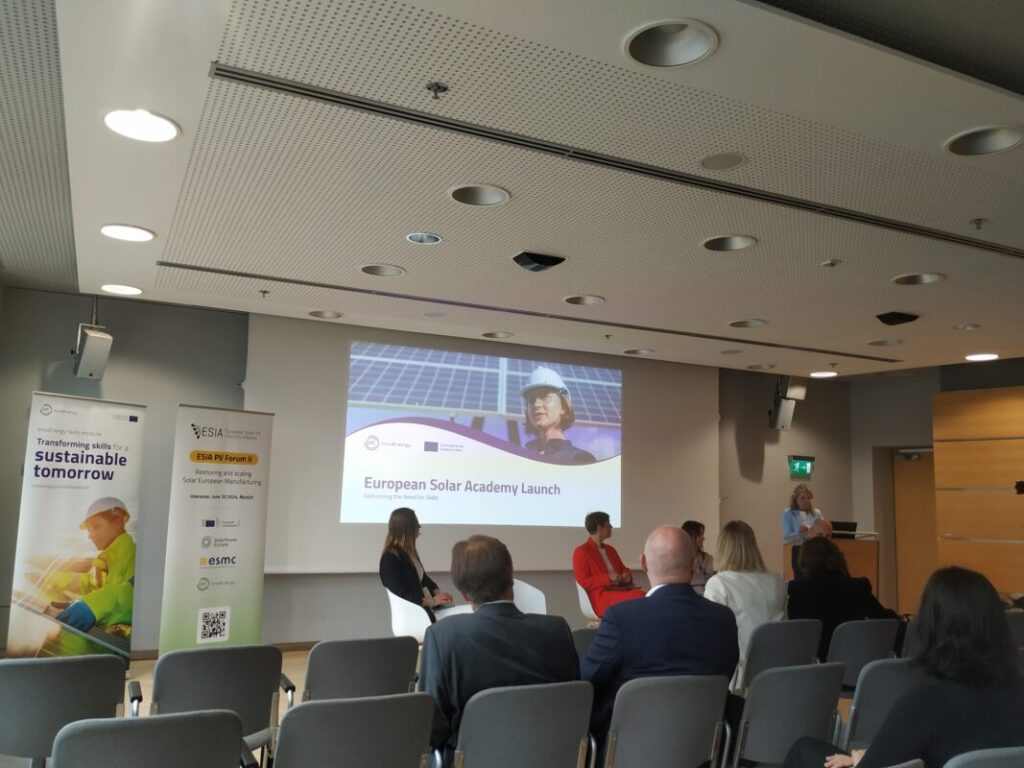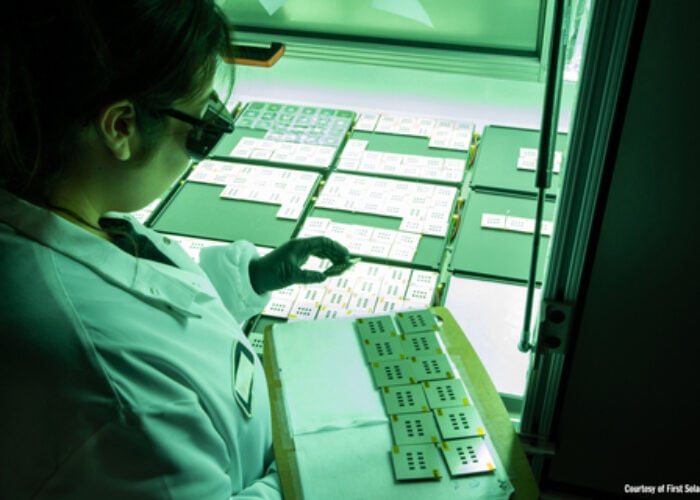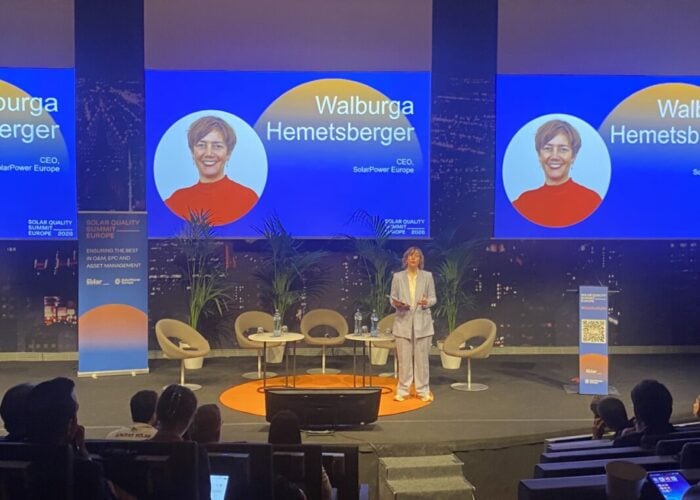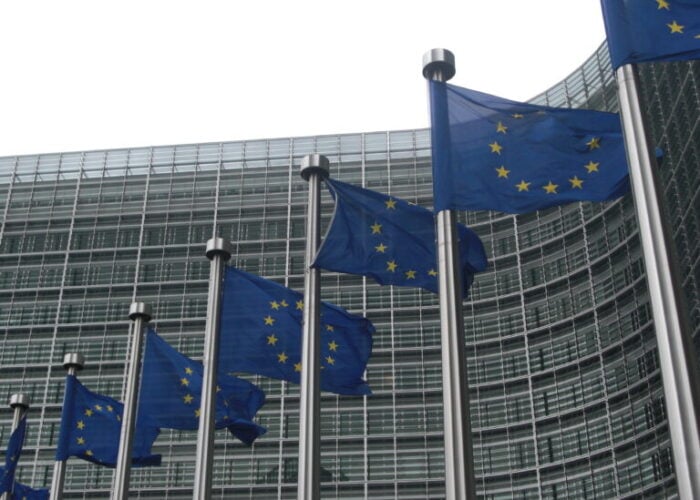
Dutch investment platform EIT InnoEnergy has launched the European Solar Academy to help train 65,000 people to work in the European PV sector.
Launched this afternoon at the Intersolar Europe 2024 event, held this week in Munich, the academy is one of the ‘Net-Zero Academies’ implemented by the European Commission (EC). The academy will be operated by the InnoEnergy Skills Institute, and will look to both “upskill” and “reskill” workers over the next two years, to better prepare the European PV sector for future growth.
Try Premium for just $1
- Full premium access for the first month at only $1
- Converts to an annual rate after 30 days unless cancelled
- Cancel anytime during the trial period
Premium Benefits
- Expert industry analysis and interviews
- Digital access to PV Tech Power journal
- Exclusive event discounts
Or get the full Premium subscription right away
Or continue reading this article for free
Oana Penu, director at the InnoEnergy Skills Institute, described the initiative as a “centrally-managed platform,” which includes both educational material and accreditation. The academy will consist of more than 40 courses, with more than 80 local training providers set to be involved in education and training.
“They’re online … there’s a completely new way of learning and teaching,” added Penu, who went on to suggest that the academy will ultimately be scaled up to train 100,000 people within three years. “It also gives perspective to those who are faced with the transformation, and every transformation challenges that gives you uncertainty. Here, we are able to give you certainty.”
This certainty was a key topic of discussion. Considering the rapid pace at which technological innovation takes place in the solar sector, providing a single coherent standard of training and accreditation could be of benefit to a particularly dynamic sector, with Penu calling this academy “not a static process, but a tool that can be scaled up [until] it becomes systemic.”
The work builds on the earlier work of a similar training initiative in the European battery market, which has provided education to 67,000 individuals, through 4,000 local training providers. Penu drew attention to the fact that beneficiaries of this scheme have agreed to 11 memoranda of understanding with European governments, demonstrating the potential efficacy of such a centralised education platform.
‘Rehabilitate the technical education’
However, the panellists noted the challenges that remain for training in the European solar sector. Research from trade body SolarPower Europe (SPE) suggests that Europe will need 400,000 additional trained installers by 2030 as Europe’s governments look to expand solar deployments, while the upstream sector will need an additional 50,000 workers by the end of the decade.
While Kerstin Jorna, director general of the EC, noted that the new initiative would focus on both retraining experienced workers, in addition to attracting graduates to the solar sector, scaling up this level of training, especially in the upstream sector, will be a challenge.
“We need someone to know how to operate a factory,” noted Laura Miranda, head of sustainability and government affairs at cell developer Oxford PV, highlighting her perceived lack of industrial expertise in Europe in general.
There could also be an issue of image, with many panellists suggesting that energy in general, and solar in particular, are not perceived as desired careers, especially by young people. While SPE CEO Walburga Hemetsberger noted that “we’re posting on TikTok!”, this demonstrates the need for a refresh of the idea of manufacturing and installation.
“We need to rehabilitate the technical education; this is not something that is attractive enough today,” added Hemetsberger. “We need really good teachers that can educate young people, but also people that want to change their jobs. This is all about communication about the attractiveness of jobs.”
“It’s climate,” added Jerome Goerke, founder of greentech.training, suggesting that the existential need for decarbonisation in the world’s energy mix will be a motivating factor. He also noted that the new Green Energy Career Day could also attract new workers to the solar sector.
The launch follows similar discussions about challenges in the European manufacturing sector held earlier today, as Europe’s leaders look to further incentivise working in the upstream sector.






